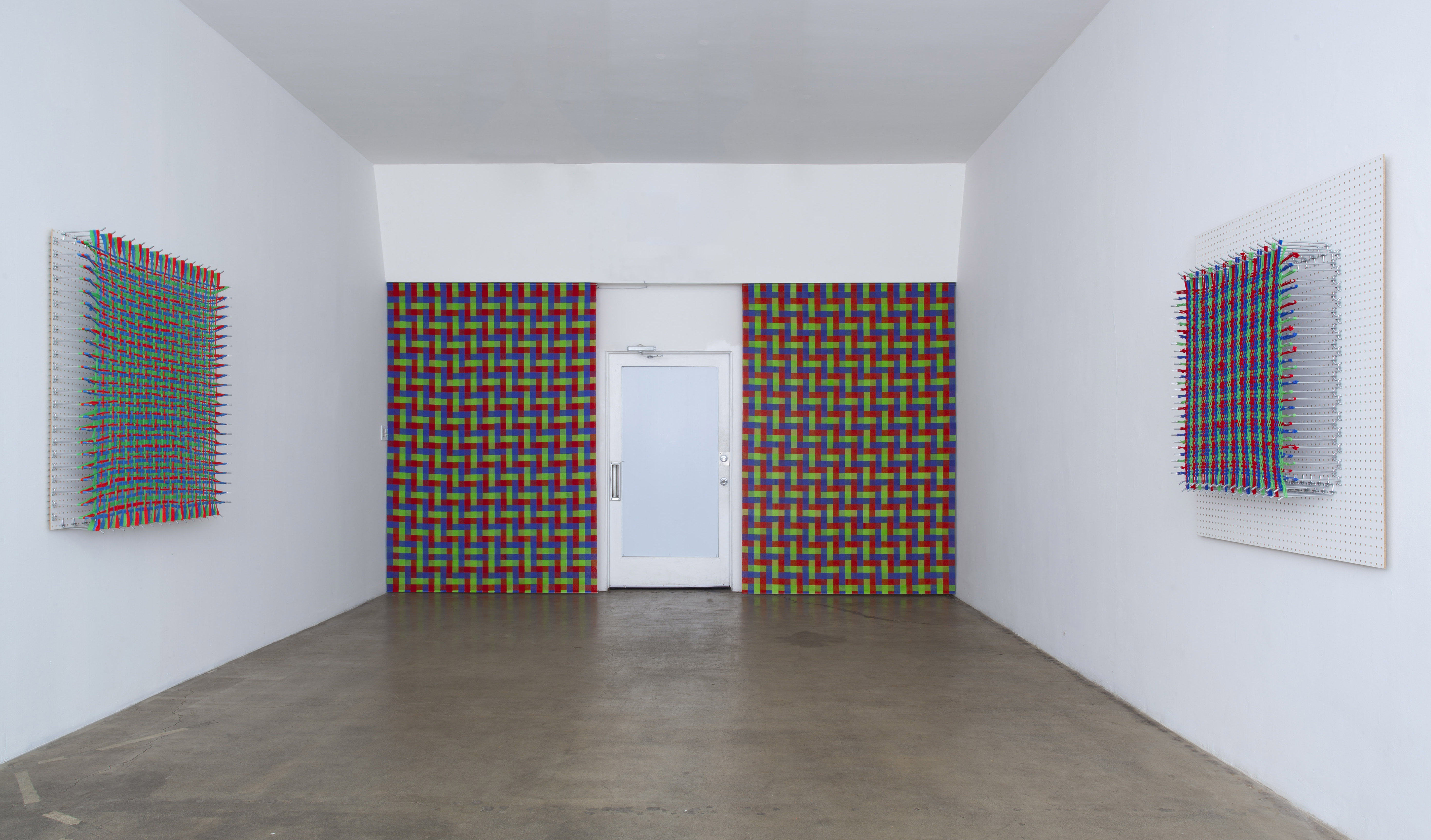
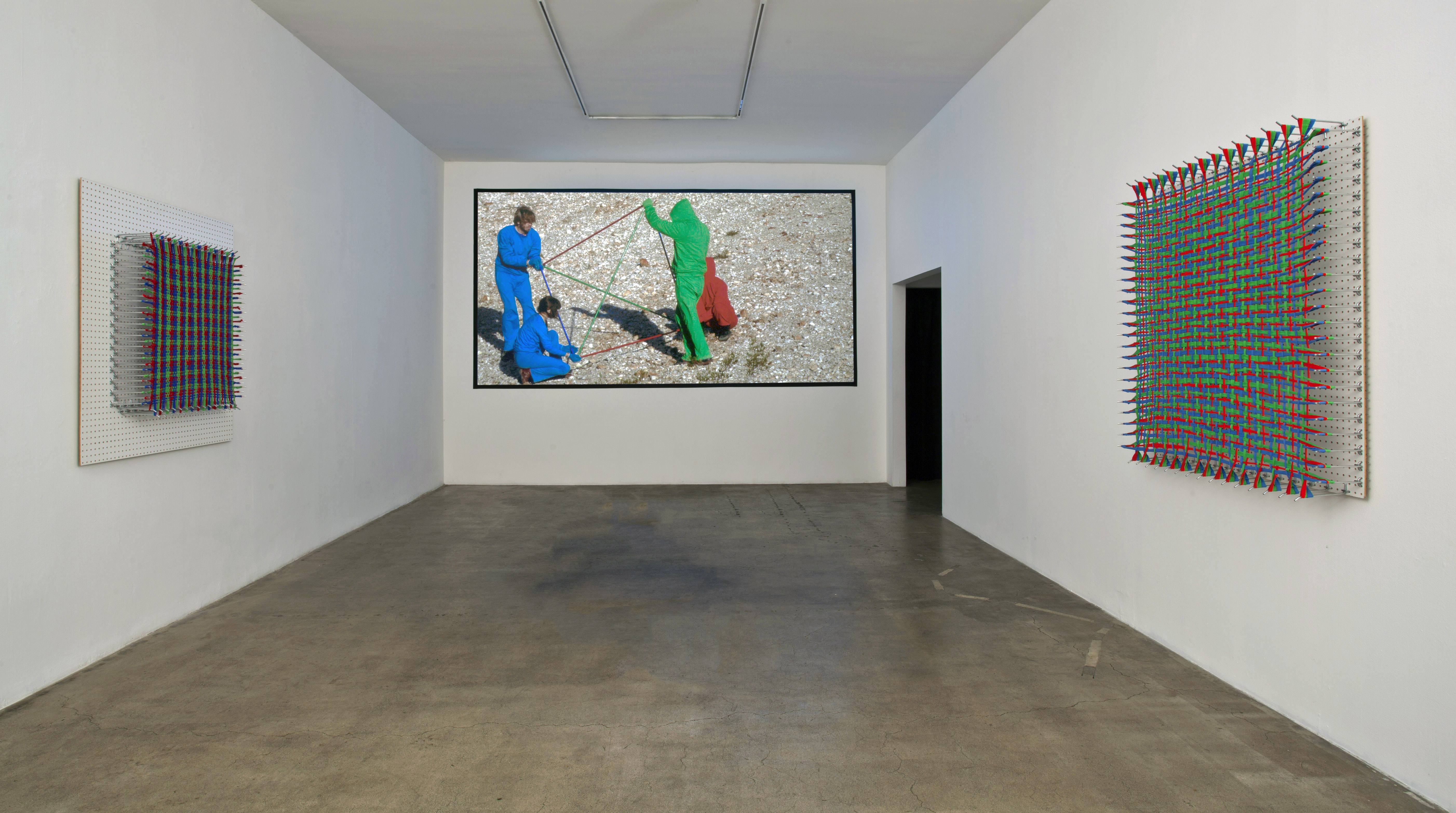
Installation views of 3 to 4, 2010, Thomas Solomon Gallery, LA


RGB Tapestry A, 2010
Polyester, dye, thread, metal
101 ½ x 69 ½ x 1 inches
Polyester, dye, thread, metal
101 ½ x 69 ½ x 1 inches
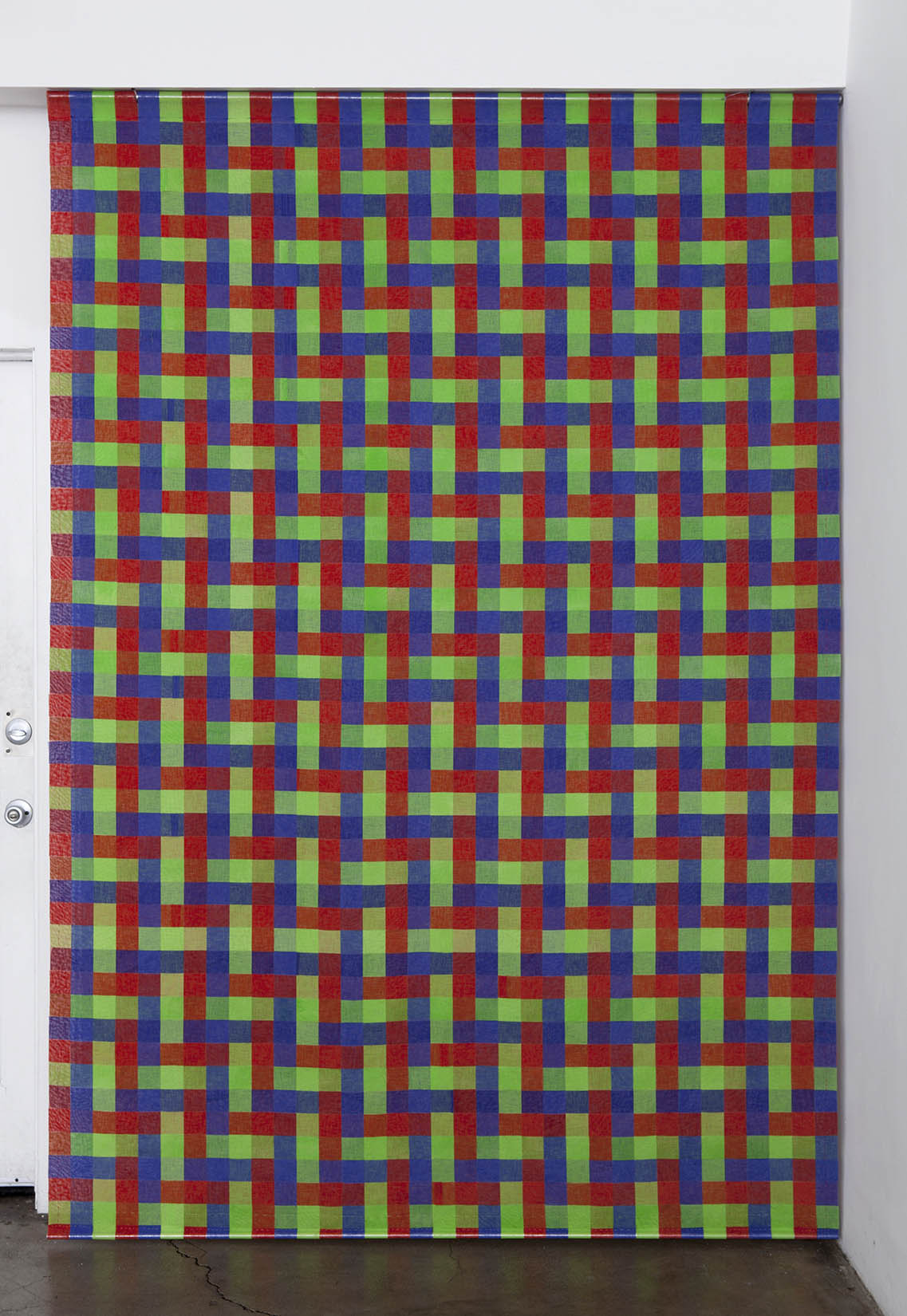
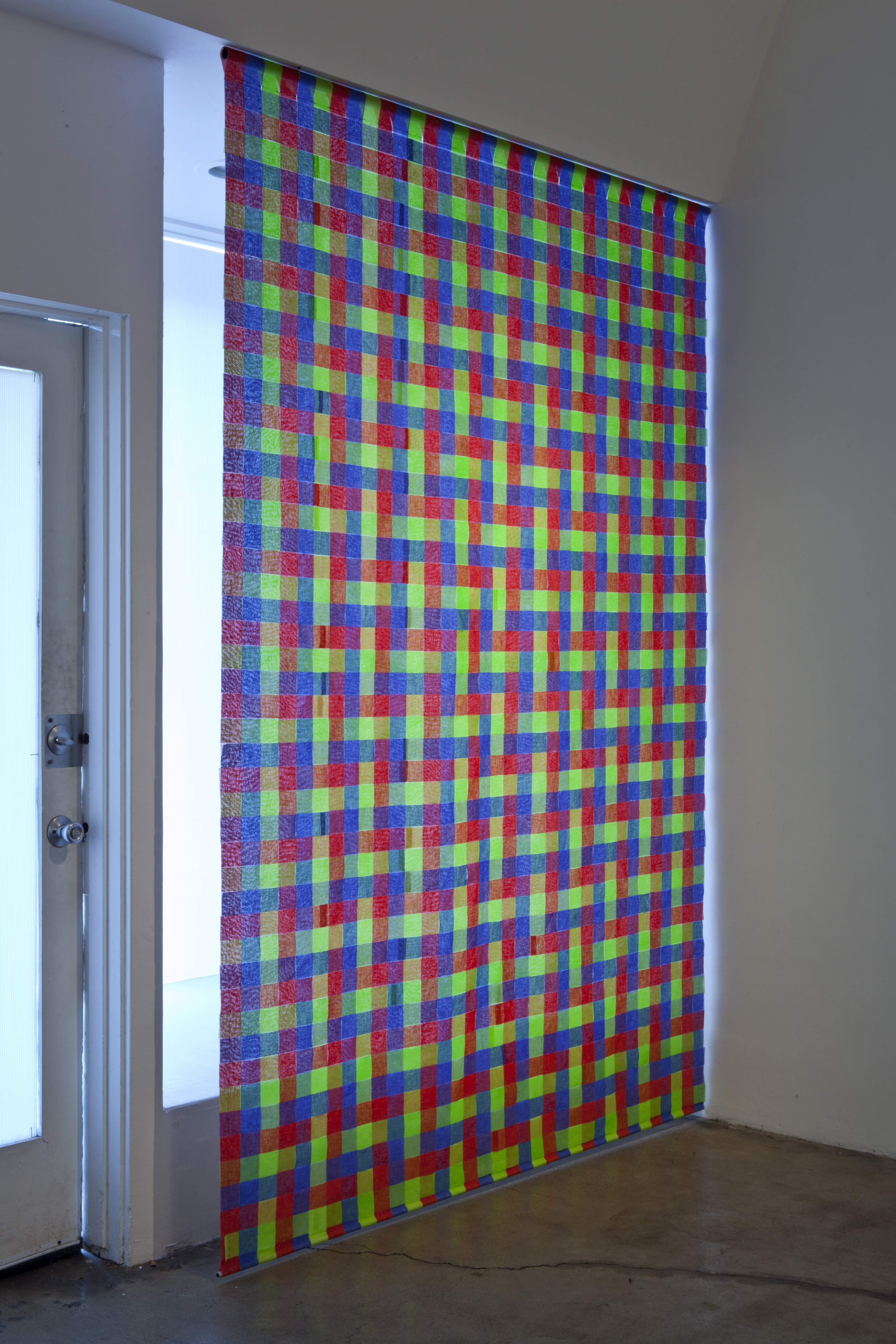

RGB Tapestry B, 2010
Polyester, dye, thread, metal
101 ½ x 69 ½ x 1 inches
Polyester, dye, thread, metal
101 ½ x 69 ½ x 1 inches


RGB Tops, 2010
T-shirts, dye, metal, pegboard, thread
48 x 48 x 8 inches
T-shirts, dye, metal, pegboard, thread
48 x 48 x 8 inches
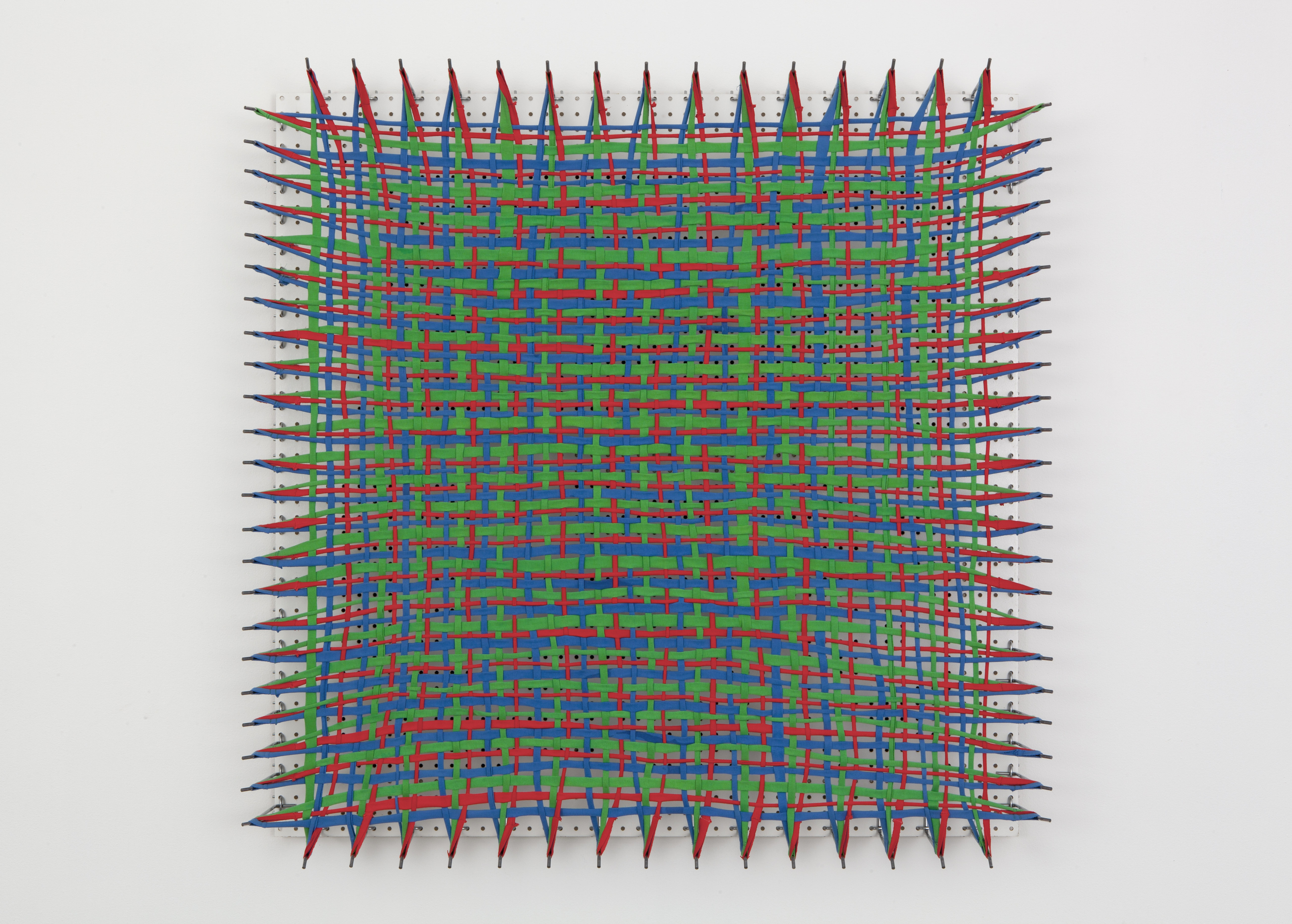

RGB Bottoms, 2010
Sweat pants, dye, metal, pegboard, thread
49 x 49 x 8 inches
Sweat pants, dye, metal, pegboard, thread
49 x 49 x 8 inches
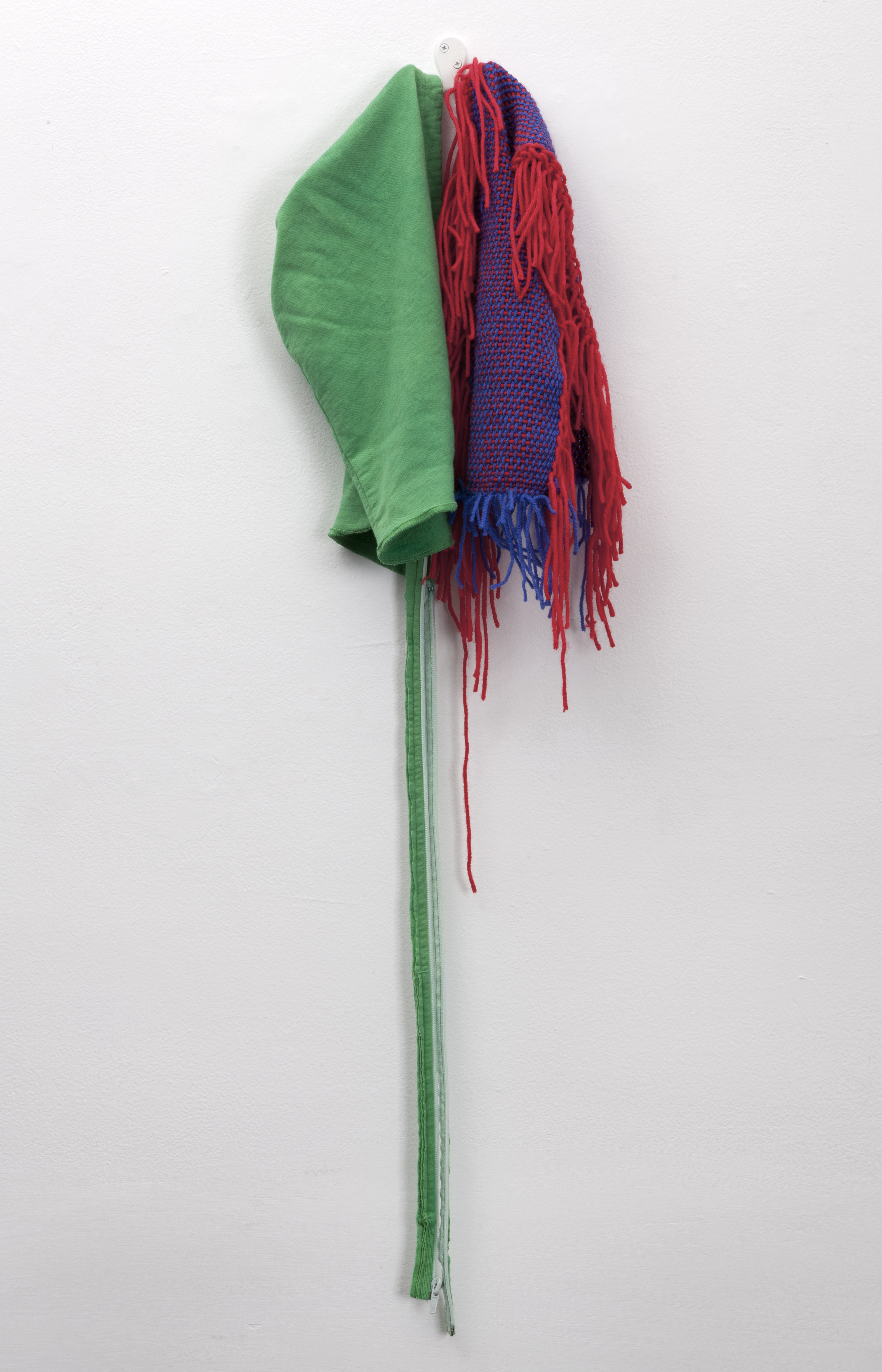
Green Hoodie Weaving, 2010
Hood, dye, zipper, acrylic yarn
Overall dimensions variable
Hood, dye, zipper, acrylic yarn
Overall dimensions variable
3 to 4, excerpt,
2010
Single Channel HD video with sound
duration 8 min
Single Channel HD video with sound
duration 8 min
3 to
4 is
a meditation on how we physically relate to paradigms of Cartesian space, digital
space and the natural environment. The video records the passage of time. It
takes place throughout a single day in which six dancers construct a sculpture from
colored wooden rods. The red, green and blue rods depict digital color blocks,
or pixels, that we view on LCD monitors and video projectors. The sculpture is
also a Cartesian vector system. It replicates the XYZ axes that we use to
locate objects in 3 dimensional space. The dancers pass the sculpture from hand to hand wearing RGB costumes
that correspond to the colored XYZ axes, thus fusing into the color system as
well as complicating it. The dancers are agents of binary and digital space,
transfixed on the task of keeping the rods suspended. The choreography
is based on how the body interprets ideas of left and right, orthogonal space,
and foreign objects. Their collective activities suggest 4, or more, dimensions
and our potential to explore this layered experience of space through our
perceptions of color, movement, and social activity.